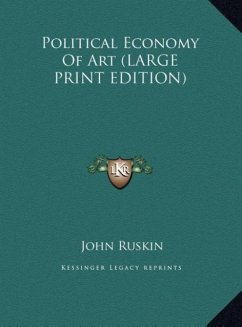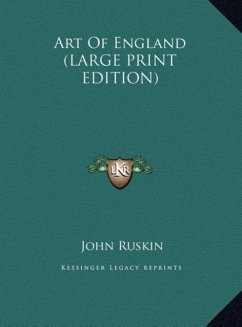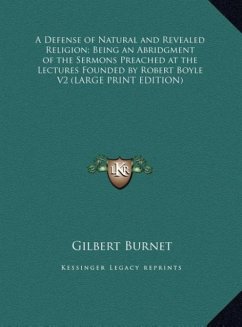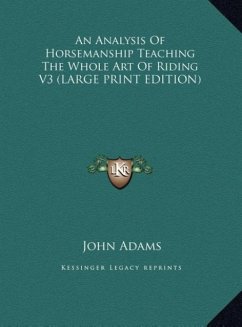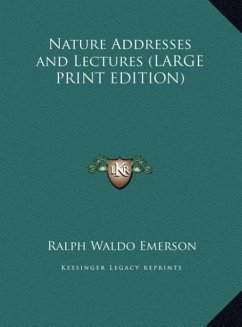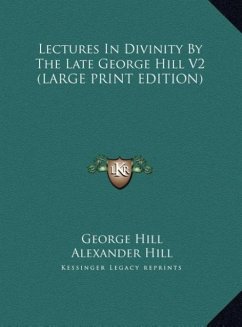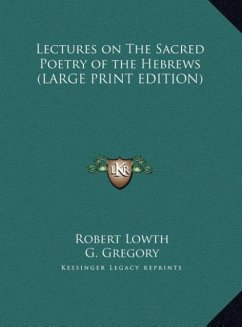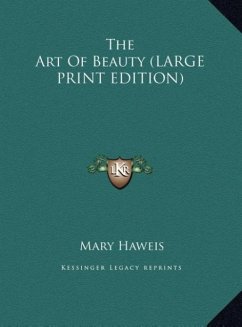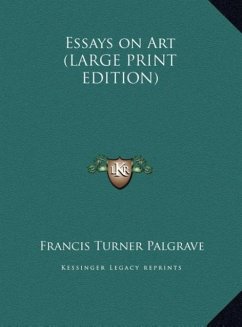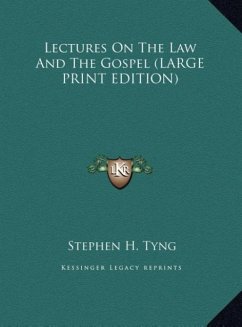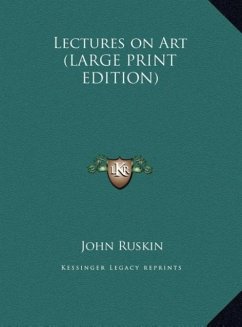
Lectures on Art (LARGE PRINT EDITION)
Versandkostenfrei!
Versandfertig in 1-2 Wochen
36,99 €
inkl. MwSt.

PAYBACK Punkte
18 °P sammeln!
(LARGE PRINT EDITION) 1870. Delivered before the University of Oxford in Hilary Term. Ruskin, the greatest Victorian bar, was an artist, scientist, poet, environmentalist, philosopher, and the preeminent art critic of his time. The titles of the seven lectures contained in this volume are: Inaugural; The Relation of Art to Religion; The Relation of Art to Morals; The Relation of Art to Use; Line; Light; and Color. See other titles by this author available from Kessinger Publishing.



